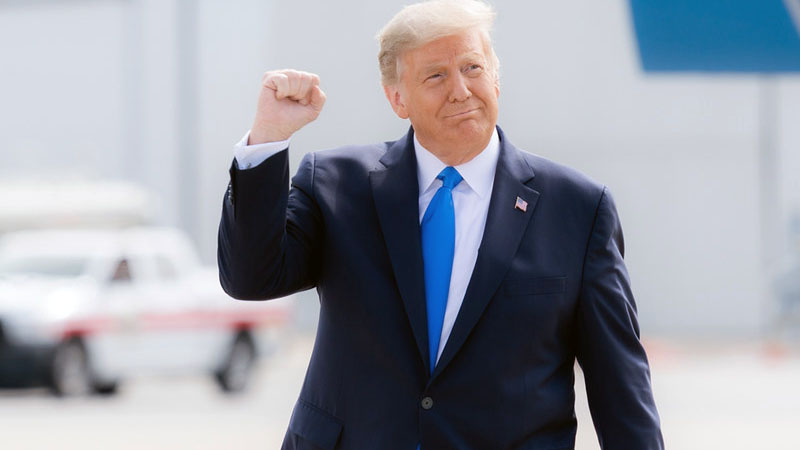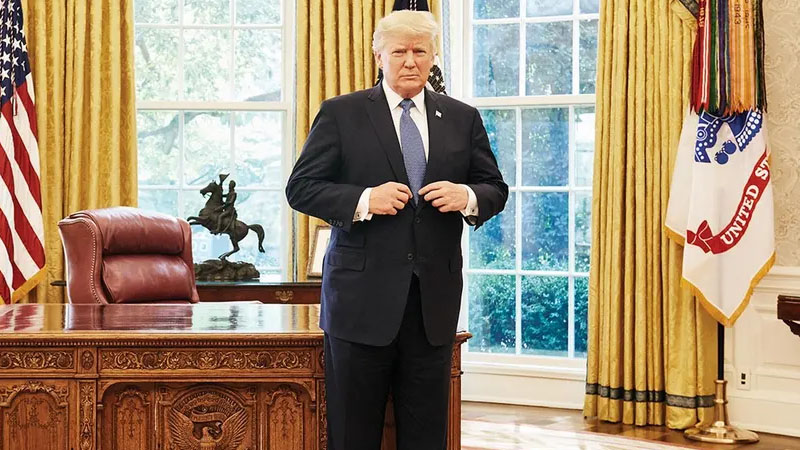President Donald Trump’s abrupt decision to pause his sweeping tariff plans was not simply a calculated negotiation tactic but rather a direct response to a looming economic threat triggered by a bond market meltdown, according to top financial experts.
What’s being described as a “fire sale” in the bond market forced the White House to announce a 90-day delay on new “reciprocal” tariffs, prompting one of the largest stock market rallies in recent history. Fox Business senior correspondent Charlie Gasparino was among those who pointed to the financial chaos as the true driver behind Trump’s sudden reversal. “Let’s be clear about what happened.
More: Mike Johnson Bends to Trump After GOP Meltdown Over Maternity Voting — Critics Call ‘Deal’ a Total Betrayal
More: Trump’s Hidden Trade Bombshell Could Wreck U.S. Ports and Trigger a New Recession — Expert Sounds Alarm
Who capitulated here and why? I don’t want to say this because I am a patriot, I am an American, but it is the White House that capitulated based on everything I hear and all my sources,” Gasparino said on-air. The tipping point, Gasparino noted, was the 10-year Treasury yield spiking to 5 percent—an alarming benchmark that caused major disruptions in lending markets.
According to Gasparino’s sources, Japan began selling off U.S. Treasury bonds during trade talks, signaling a serious loss of confidence in the American economy. This, he said, left the administration little choice but to reconsider its tariff strategy.
Despite this, Treasury Secretary Scott Bessent insisted the pause was part of “the president’s strategy all along.” Speaking to reporters outside the White House, Bessent stated, “He and I had a long talk on Sunday, and this was his strategy all along,” according to DailyMail.

Even President Trump acknowledged the financial tension during a press briefing. “The bond market right now is beautiful,” he said. “I saw last night where people were getting a little queasy.”
Economist Mohamed El-Erian, chief economic adviser at Allianz, also weighed in, pointing squarely at the bond market turmoil as the deciding factor. In a post on X (formerly Twitter), El-Erian wrote, “We got the answer today: It’s the government bond market—particularly, how close it gets to the line that separates wild price volatility from market malfunctioning.”
More: Ex-GOP Rep Says Crazies Are Running the Asylum After Trump Allegedly Fires NSA Chief on Conspiracy Theorist’s Advice
More: Trump Reportedly Losing Patience With Cabinet Member Behind Market Nosedive
Reactions online were mixed. Supporters applauded Trump’s move, calling it “brilliant” and a “trading genius” maneuver. One user commented, “The 90-day hiatus is to take the pressure off rapidly escalating bond yields while they do so, or the US financial system would have been in deeeeep do-do.”
Critics, however, weren’t convinced. “Trump has overplayed his hand and lost,” wrote one. Another accused the move of insider trading, saying, “He said now it’s time to buy right before he announced the pause. Insider market trading must be impeached.” As the dust settles, experts agree: it was the bond market—not political strategy—that pulled the emergency brake on Trump’s tariff push.
READ NEXT:
- “We Have Nothing to Lose but Our Chains” David Brooks Urges Americans to Rise Up Against Trump’s Authoritarian Agenda
- Rihanna and A$AP Rocky getting married soon?
- “This Is How Democracies Fall” GOP Blames Shapiro’s Own Party After Firebomb Attack on His Home
- Prince Harry’s Absence after Marriage ‘Killed the Spirit’ of Sentebale
- “We Must Kill Him”: Woman and Stranger Allegedly Plotted Partner’s Murder After Meeting on Bus

